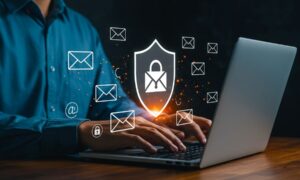The financial sector has been at the forefront of technological development for many decades, but what we call ‘fintech’ was really born as a result of the 2008 financial crisis. Clients lost faith in traditional banking processes, and along with the rise of all things digital, the modern fintech industry was kickstarted.
Banks were early adopters, and also drivers, of new technology. The handheld calculator, and the first ATM were launched in 1967, for example. The 1950s presented the credit card. Stock exchanges became digital in the 1970s. The ‘80s popularized the mainframe computer in banking and, of course, the ‘90s saw the beginnings of online financial transacting.
With the emergence of Bitcoin in 2009 and other cryptocurrencies, we saw technology having an even greater influence on the financial sector.
Fintech – or financial technology – businesses have been classified as an emerging class of companies, as they’ve disrupted and split from the change-resistant banking sector. Many of these companies are tech startups that provide technology platforms and apps to replace banking services as we know them.
There is still a level of mistrust towards these companies, so it’s vitally important that they present themselves as reliable and responsible. Perhaps they’re the teenagers of the banking sector: slightly intimidating, but with tremendous potential.
How do these companies go about building trust?
It’s absolutely crucial for fintechs to reassure their clients that they’re doing all they can to protect their data. They need to be able to show that they’re providing a secure environment for their clients’ assets and not just a hangover from the tech madness of the dot-com bubble.
How often have you received an email, text or in-app message from your bank, warning of phishing scams? Warning us not to pass on personal information or click on links that ask for our login credentials? And that’s all valuable advice. But have you ever wondered how secure your banks’ systems are, to ensure their employees aren’t being phished of your data? A data breach is a very serious matter and may result in the closure of a company, but by that time, your data has left the building.
Email: lifeblood and menace
Email is the lifeblood of many organizations these days, particularly companies whose entire operation is based on technology. Fintechs’ communications and transactions are digital, hence their dependence on email. And while email is the business tool of highest productivity, it’s also the most successful vehicle for cybercrime, particularly phishing.
Phishing has become the prevalent form of cyber-attack in 2023. Google blocks about 100 million phishing emails every single day. That’s a huge number for just one platform.
Proactive fraud prevention via email requires a multipronged approach: protocols, systems and technology; and employee awareness and education.
Employee education
Cyber-criminals rely on the fact that we’re largely overwhelmed with email, it allows us to respond quickly and on-the-go, and we’re pretty trusting of communications that come through our own inbox.
It’s when we’re busy and in a rush that these scams catch us out – even savvy tech people are caught out. Malicious criminals are really good at using sophisticated tools like AI. It’s their job to trick us, after all. This is why it’s crucial that every staff member is educated and aware.
It might seem obvious, but it’s simple things like checking sender email addresses, being cautious with attachments, and making sure links are legitimate, that can stop a trickster’s phishing attempts. The greatest vulnerability for any organization is human error. We make mistakes and we’re easily manipulated.
Technology tools
Technology is the first line of defense against phishing attempts, but it’s essential that systems are constantly updated and reviewed. Here are a few solutions that every fintech should employ:
Real-time threat detection is a sophisticated solution that blocks phishing attempts by using algorithms and machine learning to detect shady emails before they reach the intended recipient.
Multi-factor authentication (MFA) asks users for multiple pieces of evidence to prove their identity. This reduces the risk of entry, even if a hacker gets hold of login credentials. Often passwords will expire after a certain time, making it time-sensitive.
Authentication protocols such as SPF, DKIM, and DMARC are authentication methods that help check incoming emails for their authenticity.
Managed email service – an extra layer of trust
A managed email service is crucial for a fintech company in building trust around cybersecurity due to several key factors.
Firstly, it provides enhanced security features such as advanced encryption, phishing protection and spam filters, ensuring that sensitive financial data and client information is safeguarded against cyber threats.
Secondly, a managed service often includes regular updates and maintenance. This keeps the email system resilient against the latest cyber threats.
And finally, by outsourcing email management to specialists, fintech companies can focus on their core business activities while benefiting from the expertise of cybersecurity professionals.
This not only bolsters the security of their communication channels but also demonstrates a commitment to protecting client data, thereby reinforcing client trust and confidence in the fintech company’s reliability and professionalism.
Financial institutions will always be targets for hackers and cyber-criminals. They simply have to be ahead of the curve with regards to technology and employee awareness. The implications of a data breach are huge, from compliance and legal implications to reputational downfall and ultimate closure.
Any client or potential client who thinks their personal information might be at risk, will move elsewhere to an organization that demonstrates robust cyber-security. Fintech companies are at the forefront of how we bank, and how we live.
On one hand, they’re driving technology, but they’ve also got to be at the forefront of cybersecurity.
With email as the gateway, it’s vital that these organizations focus on technology and human solutions to build and maintain the trust of their clients.
**********************************************************************************************************
Author bio: Niall Mackey is the Commercial Director of Topsec Cloud Solutions. His team excels in enhancing email security for firms, safeguarding sensitive data against cyber threats.



































